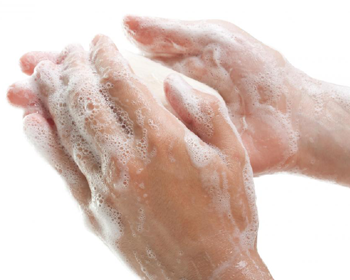Keeping hands clean prevents illness at home, at school and at work. Hand hygiene practices are key prevention tools for everyone. To protect yourself from germs, thoroughly wash your hands.
Some viruses can live up to two hours or longer on surfaces like doorknobs, desks and tables. By frequently washing your hands, you get rid of germs that you have picked up from other people, surfaces or animals.
How should I wash my hands?
Wet your hands, apply solid (bar) soap or liquid. If using a bar of soap, be sure to place it on a rack and allow it to drain after use.
• Rub your hands vigorously together and scrub all surfaces of hands and wrists.
• Continue for 20 seconds, or about the time it takes to sing the “Happy Birthday” song twice.
• Rinse well and dry your hands.
The use of gloves does not eliminate the need for hand hygiene.
According to the Hand Hygiene Resource Center, nurses, doctors and other healthcare workers can contaminate their hands by doing simple tasks, including:
Taking a patient’s blood pressure or pulse
Assisting patients with mobility
Touching the patient’s gown or bed sheets
Touching equipment, including bedside rails, over-bed tables, IV pumps
So when should we wash our hands?
Your hands are visibly soiled (dirty)
Hands are visibly contaminated with blood or body fluids
Before eating
After using the restroom

